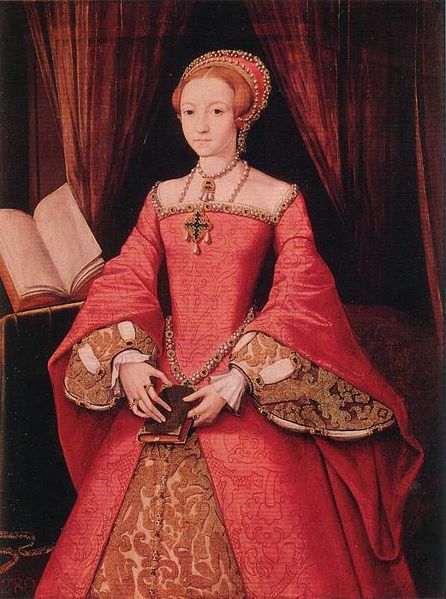Elizabeth I (1533 - 1603)
|
Elizabeth I was Queen of England and Ireland from 17 November 1558 until her death. Sometimes called The Virgin Queen, Gloriana, or Good Queen Bess, Elizabeth was the fifth and last monarch of the Tudor dynasty. The daughter of Henry VIII, by his second wife, Anne Boleyn, who was executed three years after her birth; Elizabeth was declared illegitimate. In 1558 Elizabeth succeeded her half-sister, the Catholic Mary, during part of whose reign she had been imprisoned on suspicion of supporting Protestant rebels. Elizabeth set out to rule by good counsel, and she depended heavily on a group of trusted advisers led by William Cecil, Baron Burghley. One of her first moves was to support the establishment of an English Protestant church, of which she became the Supreme Governor. This Elizabethan Religious Settlement held firm throughout her reign and later evolved into today's Church of England. It was expected that Elizabeth would marry, but despite several petitions from parliament, she never did. Within twenty years of her death, Elizabeth was being celebrated as the ruler of a golden age. Elizabeth's reign is known as the Elizabethan era, famous above all for the flourishing of English drama, led by playwrights such as William Shakespeare and Christopher Marlowe, and for the seafaring prowess of English adventurers such as Francis Drake and John Hawkins. |
